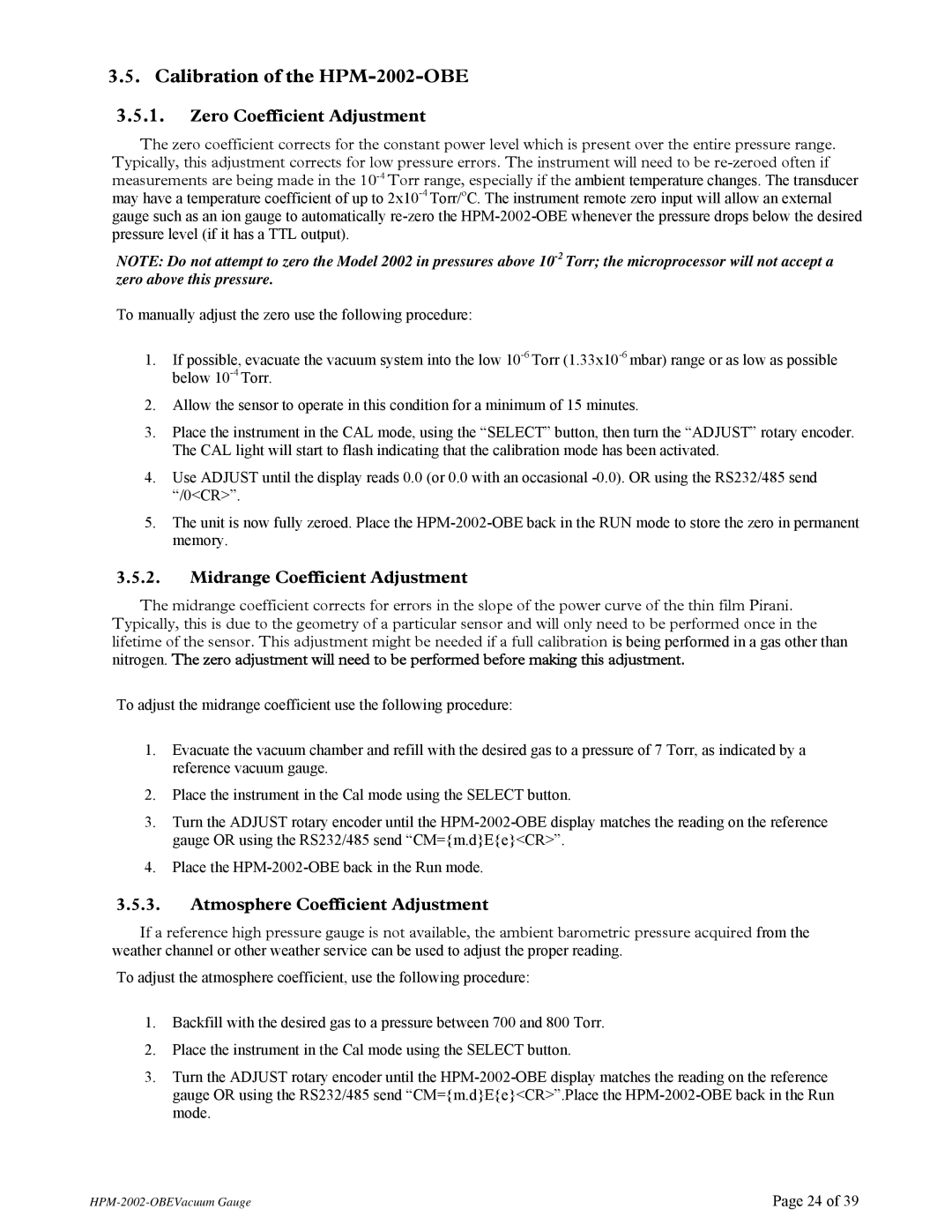3.5.Calibration of the HPM-2002-OBE
3.5.1.Zero Coefficient Adjustment
The zero coefficient corrects for the constant power level which is present over the entire pressure range. Typically, this adjustment corrects for low pressure errors. The instrument will need to be
NOTE: Do not attempt to zero the Model 2002 in pressures above
To manually adjust the zero use the following procedure:
1.If possible, evacuate the vacuum system into the low
2.Allow the sensor to operate in this condition for a minimum of 15 minutes.
3.Place the instrument in the CAL mode, using the “SELECT” button, then turn the “ADJUST” rotary encoder. The CAL light will start to flash indicating that the calibration mode has been activated.
4.Use ADJUST until the display reads 0.0 (or 0.0 with an occasional
5.The unit is now fully zeroed. Place the
3.5.2.Midrange Coefficient Adjustment
The midrange coefficient corrects for errors in the slope of the power curve of the thin film Pirani. Typically, this is due to the geometry of a particular sensor and will only need to be performed once in the lifetime of the sensor. This adjustment might be needed if a full calibration is being performed in a gas other than nitrogen. The zero adjustment will need to be performed before making this adjustment.
To adjust the midrange coefficient use the following procedure:
1.Evacuate the vacuum chamber and refill with the desired gas to a pressure of 7 Torr, as indicated by a reference vacuum gauge.
2.Place the instrument in the Cal mode using the SELECT button.
3.Turn the ADJUST rotary encoder until the
4.Place the
3.5.3.Atmosphere Coefficient Adjustment
If a reference high pressure gauge is not available, the ambient barometric pressure acquired from the weather channel or other weather service can be used to adjust the proper reading.
To adjust the atmosphere coefficient, use the following procedure:
1.Backfill with the desired gas to a pressure between 700 and 800 Torr.
2.Place the instrument in the Cal mode using the SELECT button.
3.Turn the ADJUST rotary encoder until the
| Page 24 of 39 |
